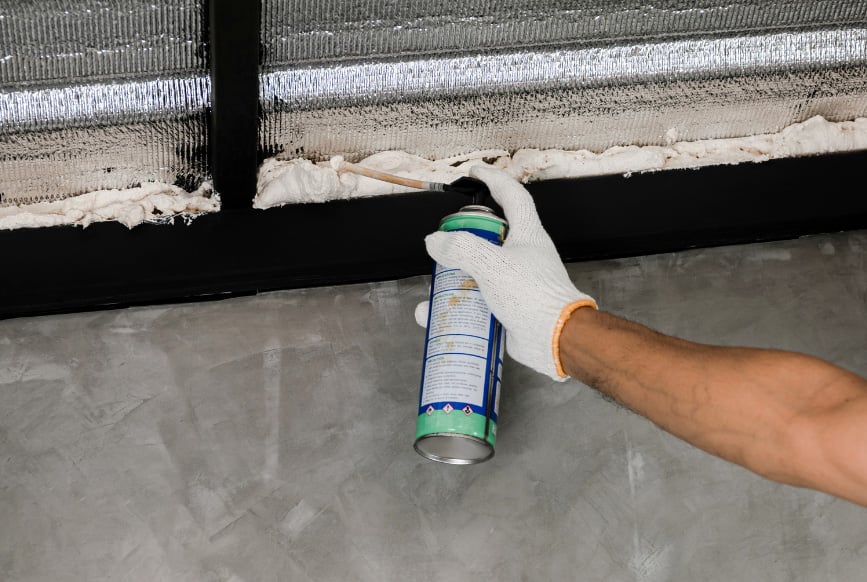Pre-shipment inspection plays a crucial role in ensuring the quality and reliability of construction adhesives and sealants. Before these products are shipped to the buyer, a thorough inspection is conducted to verify that they meet the required specifications, adhere to industry standards, and comply with regulations. This inspection covers various aspects, including the chemical composition, physical properties, packaging, and labelling of the products. By identifying any defects or deviations from the standards early on, pre-shipment inspection helps prevent potential risks, such as compromised structural integrity or project delays. Additionally, it acts as a safeguard against counterfeit products, ensuring that buyers receive genuine and high-quality construction adhesives and sealants. Overall, pre-shipment inspection provides buyers with peace of mind, cost savings, and the assurance that they are making a sound investment in their construction projects.

Why do you need an inspection?
Quality Assurance and ComplianceFirst and foremost, pre-shipment inspection serves as a robust quality assurance measure. By thoroughly examining construction adhesives and sealants before they leave the manufacturing facility, an inspector can ensure that the products meet your specifications and adhere to industry standards and regulations. From the chemical composition to the physical properties, an inspector will meticulously check every aspect to verify that the products are of the highest quality and comply with the necessary guidelines.
Identifying Defects and Potential RisksEven the smallest defect or deviation from the required standards in construction adhesives and sealants can have serious consequences on the performance and longevity of a construction project. Pre-shipment inspection allows for the early identification of such defects, ranging from inconsistencies in viscosity or colour to improper packaging or labelling. By catching these issues before the products are shipped, you can avoid costly rework, project delays, or worst-case scenario, compromising the safety of the structure itself.
Preventing Counterfeit ProductsIn recent years, the construction industry has seen a rise in counterfeit products flooding the market. These fraudulent items may pose significant risks due to their inferior quality and unreliable performance. Engaging a pre-shipment inspector ensures that you receive genuine construction adhesives and sealants, sourced directly from reputable manufacturers. By verifying the authenticity of the products, an inspector acts as a safeguard against falling victim to counterfeit or substandard materials.
Supplier Evaluation and AccountabilityPre-shipment inspection not only benefits you as the buyer but also holds the supplier accountable for the quality of the products they provide. By including inspection as an integral part of your procurement process, you send a clear message to suppliers that you prioritize quality and expect compliance with your specifications. This practice fosters a sense of responsibility among suppliers and encourages them to consistently deliver products that meet your requirements.
Peace of Mind and Cost SavingsOne of the most significant advantages of pre-shipment inspection is the peace of mind it brings. Knowing that your construction adhesives and sealants have undergone thorough scrutiny and testing ensures that you are making a sound investment. By avoiding potential issues and disruptions down the line, you save both time and money that would otherwise be spent on rectifying defects, replacing faulty materials, or dealing with legal repercussions.
An inspector conducting the pre-shipment inspection of construction adhesives and sealants may employ several methods to thoroughly assess the quality and compliance of the products. Here is a list of common methods used during such inspections:
- Visual Inspection: The inspector visually examines the products to check for any physical defects, such as cracks, discolouration, or irregularities in packaging and labelling.
- Sampling: The inspector selects random samples from the batch of construction adhesives and sealants to be inspected. These samples represent the overall quality of the entire shipment.
- Laboratory Testing: The inspector may collect samples for laboratory analysis to evaluate the chemical composition, physical properties, and performance characteristics of the adhesives and sealants. This can include tests for adhesion strength, viscosity, curing time, flexibility, and resistance to temperature and moisture.
- Documentation Review: The inspector reviews relevant documents, such as certificates of analysis, test reports, and quality control records, to ensure that the products comply with industry standards and regulations.
- Adhesive Performance Testing: The inspector may conduct tests to assess the adhesion strength of the adhesives, verifying their ability to bond different materials effectively.
- Packaging and Labelling Assessment: The inspector checks the packaging materials for suitability, durability, and proper labelling, including product information, safety warnings, and compliance with labelling requirements.
- Verification of Specifications: The inspector compares the inspected products against the buyer's specifications and requirements, ensuring that they meet the desired standards.
- Verification of Quantity: The inspector confirms that the quantity of construction adhesives and sealants matches the quantity specified in the purchase order.
- Compliance with Safety Standards: The inspector assesses the products for compliance with safety regulations, including the absence of hazardous substances and adherence to relevant safety guidelines.
- Randomized Spot Checks: The inspector may conduct randomized spot checks throughout the inspection process to ensure consistency and reliability in the assessment of the products.
By employing these comprehensive inspection methods, an inspector can provide an accurate evaluation of the construction adhesives and sealants, ensuring their quality, compliance, and suitability for the intended construction projects.











